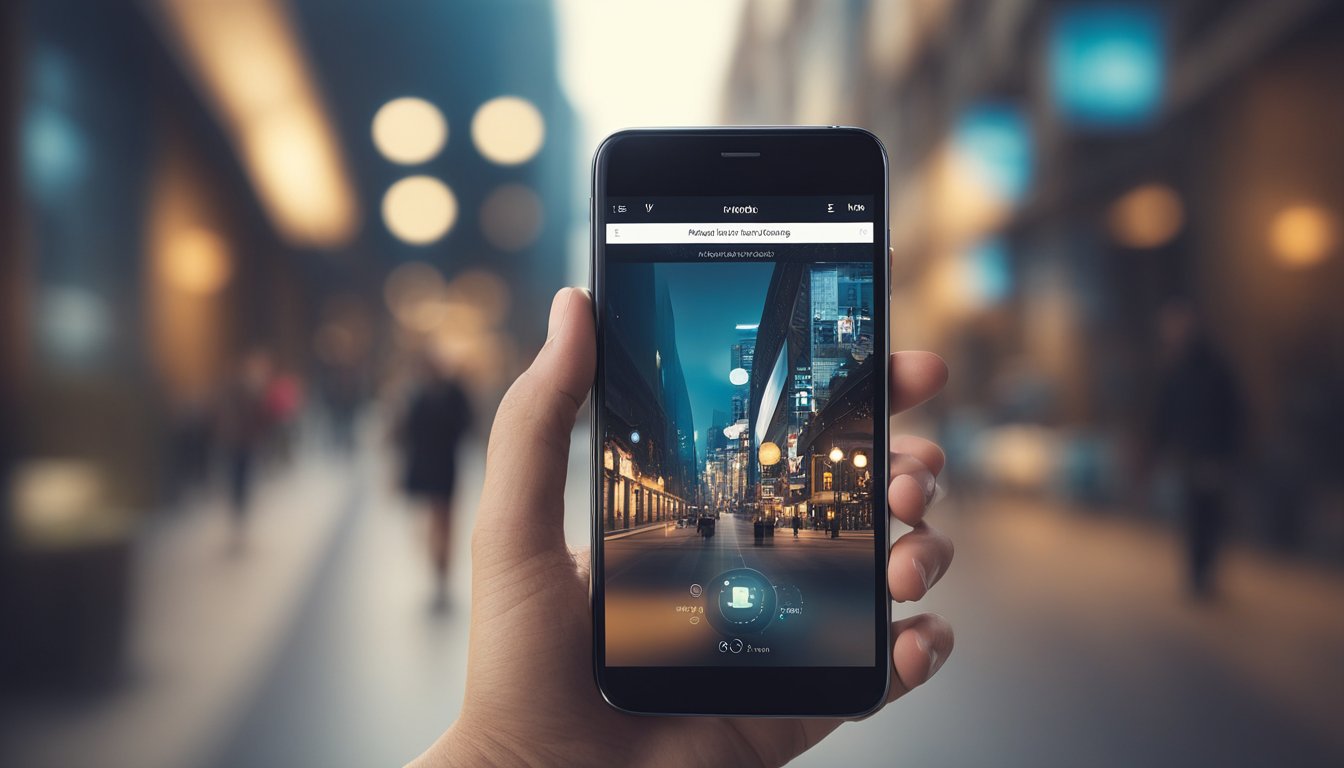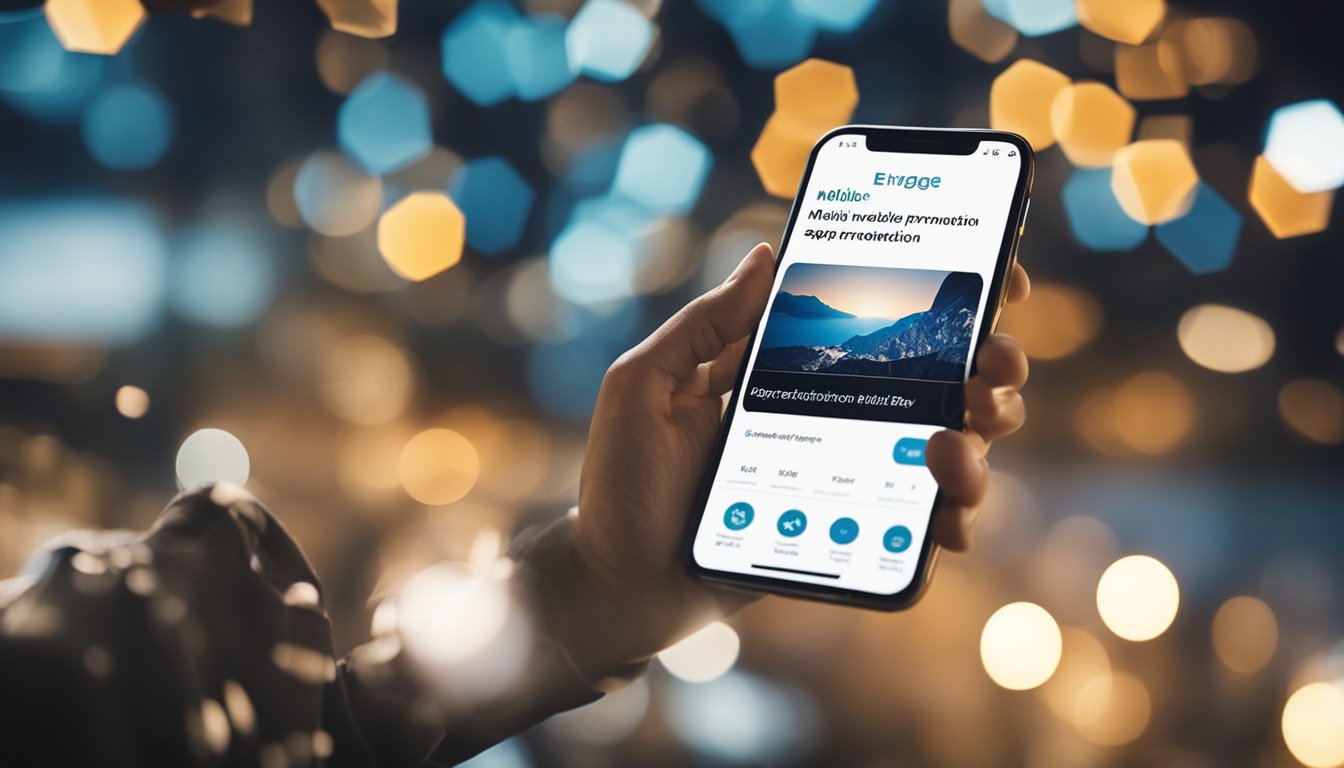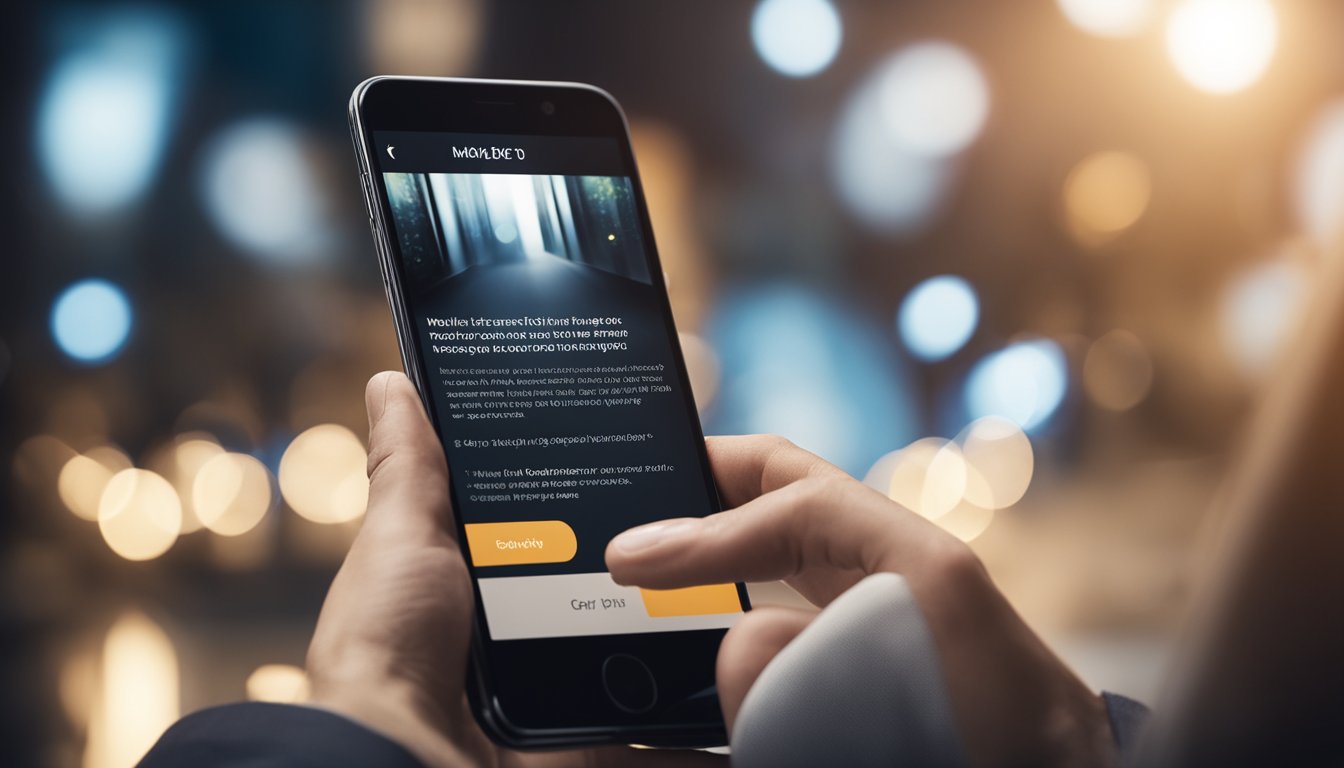
Market Your Mobile App Effectively Tips and Strategies
As the mobile app market continues to grow, it's becoming increasingly important to market your app effectively. With millions of apps available in app stores, it can be challenging to stand out and attract users. Effective marketing can help you rea
As the mobile app market continues to grow, it's becoming increasingly important to market your app effectively. With millions of apps available in app stores, it can be challenging to stand out and attract users. Effective marketing can help you reach your target audience, increase downloads, and improve user engagement.

Understanding your target audience is crucial to creating an effective marketing strategy. You need to know who your users are, what they need, and how they use your app. Once you have this information, you can tailor your marketing efforts to reach them where they are, using the channels and messaging that resonate with them.
Creating an effective marketing strategy involves optimizing your mobile app for app stores, promoting it through various channels, and engaging with your users to build a loyal following. By following these steps, you can increase your app's visibility, attract more users, and keep them coming back for more.
Key Takeaways
- Understanding your target audience is crucial to creating an effective marketing strategy.
- Optimizing your mobile app for app stores and promoting it through various channels can increase visibility and attract more users.
- Engaging with your users is essential to building a loyal following and keeping them coming back for more.
Understanding Your Target Audience

One of the most critical aspects of marketing your mobile app effectively is understanding your target audience. Your target audience is the group of people who are most likely to use your app and find value in it. By understanding your target audience, you can create a marketing strategy that speaks directly to their needs and interests.
To begin understanding your target audience, you need to start with their demographics. Demographics include things like age, gender, location, income, and education level. By understanding the demographics of your target audience, you can create a user persona that represents your ideal customer. User personas are fictional characters that represent your target audience and help you understand their needs and motivations.
Once you have a clear understanding of your target audience's demographics, you need to dive deeper into their interests and behaviors. You can use surveys and focus groups to gather information about your target audience's interests, pain points, and motivations. This information can help you create a marketing strategy that speaks directly to your target audience's needs and interests.
It's also important to understand your target audience's niche. Your niche is the specific area or industry that your app serves. By understanding your niche, you can create a marketing strategy that positions your app as the go-to solution for a specific problem or need within your niche.
In summary, understanding your target audience is essential for marketing your mobile app effectively. By understanding your target audience's demographics, interests, and niche, you can create a marketing strategy that speaks directly to their needs and positions your app as the go-to solution within your niche.
Creating an Effective Marketing Strategy

As an app developer, I know that creating an effective marketing strategy is crucial to the success of your mobile app. A well-planned marketing strategy can help you reach your target audience, increase user engagement, and ultimately drive more downloads. Here are some key steps to consider when creating your marketing plan:
Define Your Goals
Before you start planning your marketing campaigns, it's important to define your goals. What do you want to achieve with your app? Do you want to increase downloads, drive user engagement, or generate revenue? Defining your goals will help you create a more focused marketing plan that is tailored to your specific needs.
Set a Budget
Once you have defined your goals, it's time to set a budget. How much money are you willing to spend on marketing your app? Your budget will dictate the types of campaigns you can run and the channels you can use to reach your target audience.
Identify Key Performance Indicators (KPIs)
To measure the success of your marketing campaigns, you need to identify key performance indicators (KPIs). These are the metrics that you will use to track the performance of your app and your marketing efforts. Some common KPIs for mobile apps include downloads, retention rate, engagement rate, and revenue.
Develop Your Campaigns
With your goals, budget, and KPIs in mind, it's time to develop your marketing campaigns. Your campaigns should be designed to reach your target audience and achieve your goals. You can use a variety of channels to promote your app, including social media, email marketing, influencer marketing, and paid advertising.
Monitor and Adjust Your Strategy
Once your campaigns are up and running, it's important to monitor their performance and adjust your strategy as needed. Keep an eye on your KPIs and track the success of your campaigns. If something isn't working, be prepared to make changes to your strategy to improve your results.
In conclusion, creating an effective mobile app marketing strategy requires careful planning, a clear understanding of your goals and budget, and a focus on key performance indicators. By following these steps, you can develop a marketing plan that will help you reach your target audience, increase user engagement, and drive more downloads for your app.
Optimizing Your Mobile App for App Stores

As a mobile app developer, I understand the importance of optimizing my app for app stores. App Store Optimization (ASO) is a process that helps improve the visibility and ranking of your mobile app in app stores like the Apple App Store and Google Play Store. Here are some tips for optimizing your mobile app for app stores:
1. Choose the Right App Store Category
Choosing the right category for your mobile app is essential for ASO. Your app should be placed in a category that accurately reflects its purpose and functionality. This will help your app appear in relevant search results and increase its visibility.
2. Use Relevant Keywords
Using relevant keywords in your app title, description, and metadata can significantly improve your app's visibility in search results. It's essential to choose keywords that accurately describe your app's purpose and functionality. You can use tools like Google Adwords Keyword Planner or App Radar to find the right keywords for your mobile app.
3. Optimize Your App Store Page
Your app store page is the first thing potential users see when they search for your app. It's essential to optimize your app store page to make a great first impression. This includes using high-quality app icons, screenshots, and videos that accurately represent your app's functionality.
4. Encourage User Ratings and Reviews
Positive user ratings and reviews can significantly impact your app's ranking in app stores. Encourage your users to rate and review your app by prompting them within the app or through push notifications. It's essential to respond to user feedback, both positive and negative, to show that you care about your users' experience.
5. Stay Up-to-Date with App Store Guidelines
It's essential to stay up-to-date with app store guidelines to ensure your app remains compliant and doesn't get rejected. Both the Apple App Store and Google Play Store have specific guidelines you must follow to ensure your app is accepted. Make sure you read and understand these guidelines before submitting your app.
In conclusion, optimizing your mobile app for app stores is crucial for its success. By following these tips, you can improve your app's visibility, ranking, and user engagement.
Promotion and Engagement Strategies

As an app developer, I know that creating a great app is only half the battle. The other half is promoting it effectively to ensure that it reaches your target audience. In this section, I will share some proven promotion and engagement strategies that can help boost your app's visibility and user engagement.
Blogging
Blogging is a great way to promote your app and engage with your target audience. By creating high-quality blog posts that are relevant and useful to your target audience, you can establish yourself as an authority in your niche and generate interest in your app. You can also use your blog to share updates about your app and provide tips and tricks that can help users get the most out of it.
Social Media
Social media channels are a powerful tool for promoting your app and engaging with your target audience. By creating profiles on popular social media platforms like Facebook, Twitter, and Instagram, you can connect with your audience and share updates, news, and promotions related to your app. You can also use social media to run contests, share user-generated content, and build a community around your app.
Video Marketing
Videos are a highly engaging and effective way to promote your app. By creating short, engaging videos that showcase your app's features and benefits, you can capture the attention of potential users and encourage them to download your app. You can also use video marketing to share user testimonials, provide tutorials, and demonstrate how your app can solve common problems.
Push Notifications
Push notifications are a powerful tool for engaging with your app users and keeping them engaged over time. By sending targeted push notifications that are relevant and useful to your users, you can encourage them to open your app, use its features, and take advantage of new promotions and updates. You can also use push notifications to remind users about abandoned carts, offer personalized recommendations, and more.
Rewards
Rewards are a great way to incentivize users to engage with your app and share it with others. By offering rewards like discounts, freebies, and exclusive content, you can encourage users to take actions like sharing your app on social media, leaving a review, or inviting friends to download your app.
Updates
Keeping your app up to date with new features and bug fixes is essential for maintaining user engagement and satisfaction. By regularly releasing updates and improvements to your app, you can show your users that you are committed to providing a high-quality experience and addressing their needs and concerns.
Email Marketing
Email marketing is a powerful tool for promoting your app and engaging with your users over time. By building an email list of interested users and sending targeted emails that are relevant and useful to them, you can encourage them to download your app, use its features, and take advantage of new promotions and updates.
Paid Ads
Paid ads can be a highly effective way to promote your app and reach new users. By running targeted ads on popular platforms like Facebook and Google, you can reach users who are likely to be interested in your app and encourage them to download it.
Referrals
Referrals are a powerful tool for promoting your app and building a community around it. By offering incentives for users to refer their friends and family to your app, you can encourage them to spread the word and help you reach new users.
Influencer Marketing
Influencer marketing is a powerful way to promote your app and reach new users. By partnering with influencers who have a large and engaged following in your niche, you can reach a wider audience and encourage them to download your app.
Content Marketing
Content marketing is a great way to promote your app and establish yourself as an authority in your niche. By creating high-quality blog posts, videos, and other content that are relevant and useful to your target audience, you can attract new users and keep them engaged over time.
Frequently Asked Questions

What are some effective mobile app marketing strategies?
There are several effective mobile app marketing strategies that can help increase visibility and downloads. Some of these include optimizing app store listings with keywords and eye-catching visuals, leveraging social media and influencer marketing to reach a wider audience, offering promotions and discounts to encourage downloads, and utilizing paid advertising on social media and search engines.
What are some popular app marketing tools?
There are several popular app marketing tools available, including App Annie, Sensor Tower, and Mobile Action. These tools can help you track app performance, monitor user engagement, and analyze market trends to inform your marketing strategy.
How can social media be used to promote a mobile app?
Social media can be a powerful tool for promoting a mobile app. You can use platforms like Facebook, Twitter, and Instagram to build a following, engage with users, and share content related to your app. Additionally, social media advertising can be a cost-effective way to reach a wider audience and drive downloads.
What are some successful mobile app marketing campaigns?
Some successful mobile app marketing campaigns include Uber's "Deals on Wheels" campaign, which offered discounts to users who downloaded the app during a specific time period, and Airbnb's "Live There" campaign, which focused on promoting unique travel experiences through the app. These campaigns were successful because they were creative, targeted, and offered clear value to users.
What are the 4P marketing strategies for mobile apps?
The 4P marketing strategies for mobile apps include product, price, promotion, and place. Product refers to the app itself and how it meets user needs. Price refers to the cost of the app and any in-app purchases. Promotion refers to the marketing and advertising efforts used to promote the app. Place refers to the app stores and other channels where the app is available for download.
What are the main stages of a mobile app marketing plan?
The main stages of a mobile app marketing plan include research and analysis, defining target audience and positioning, developing a marketing strategy, executing the strategy, and measuring and optimizing performance. It's important to have a clear plan in place and to continually evaluate and refine your approach to ensure maximum effectiveness.




